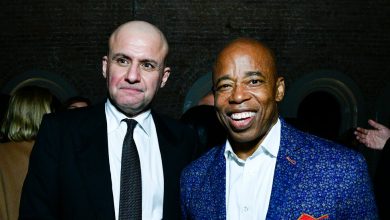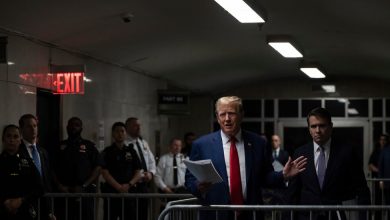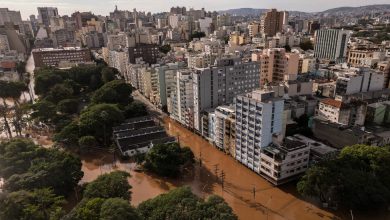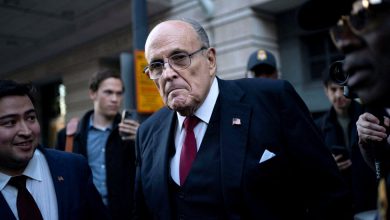Wooing African Nations, Putin Casts West as a Common Foe
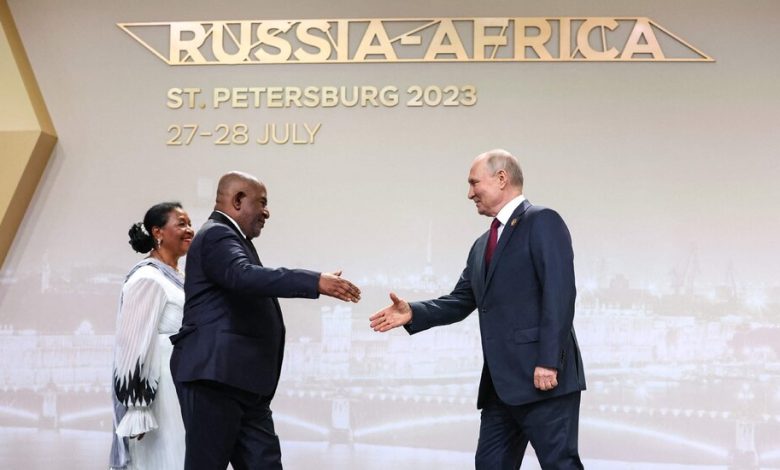
President Vladimir V. Putin of Russia on Thursday pledged free grain for some African countries and accused the West of “telling lies” about the dormant deal that had allowed Ukrainian food exports, scrambling to shore up support among African leaders and casting his war in Ukraine as part of an increasingly global conflict.
Mr. Putin hosted around 20 African leaders for the start of a two-day summit in St. Petersburg, Russia, drawing a significant contingent of officials from across the continent looking to Russia as a source of arms and food. But the gathering attracted fewer than half the number of leaders who attended the summit in 2019, a sign of how the war has tempered support for Moscow even in a region it has assiduously courted.
The Russian president began the summit on the defensive, having refused last week to extend a deal that had protected Ukrainian grain exports, pushing up the price of grain around the world. President Azali Assoumani of Comoros, the current chairman of the African Union, warned that the “Ukraine crisis” threatened “a large number of lives” because of rising food prices and called for the supply of both Russian and Ukrainian grain to be facilitated, according to the Russian translation of his remarks.
But Mr. Putin has responded with a multipronged charm offensive that underscored how he is seeking to take on the West on multiple fronts, well beyond the battlefield in Ukraine.
In his opening speech on Thursday, Mr. Putin pledged to ship tens of thousands of tons of free grain to six African countries — Burkina Faso, the Central African Republic, Eritrea, Mali, Somalia and Zimbabwe — in the next three to four months, while blaming the West for rising grain prices.
“Nothing happened of what was discussed and promised to us,” Mr. Putin said, repeating his assertion that the West had failed to fulfill its end of the grain deal and had done nothing to clear the way for Russian food and fertilizer exports.
He added that those casting Russia as an unreliable food supplier were “telling lies,” which he said had “been the practice of some Western states for decades, if not centuries.” Western officials say they have not stood in the way of Russian grain and fertilizer exports, which are not under sanctions.
Mr. Putin was followed by Patriarch Kirill I of the Russian Orthodox Church — a close Kremlin ally — who delivered his own pitch for friendship with Russia: Moscow, he said, stands against the West’s promotion of “anti-values” such as gay rights.
“Most African countries categorically reject the legalization on the legislative level of so-called same-sex unions, euthanasia and other sinful phenomena from a religious point of view,” Kirill said. “All of this, no doubt, brings our positions closer together.”
Mr. Putin’s outreach drew mixed reactions. Kenyan leaders have been critical of the summit, with President William Ruto deciding not to attend.
American officials privately exulted in the low turnout. President Hassan Sheikh Mohamud of Somalia, a staunch American ally who had signaled earlier that he would attend the summit, pulled out at the last minute to avoid giving Mr. Putin a symbolic win, a Western official said in an interview.
But in St. Petersburg, some African leaders showered Mr. Putin with praise. President Emmerson Mnangagwa of Zimbabwe, who is under U.S. sanctions, told Mr. Putin in a televised meeting on the sidelines of the summit that his country “expresses solidarity” with Russia in its war in Ukraine, according to the Russian translation of his remarks.
And some experts said that the Kremlin’s pitch of Russia as a bastion of conservative values could resonate with African leaders who embrace the same values. Those leaders include Uganda’s Yoweri Museveni, who has faced international criticism for passing a harsh anti-gay law — and who tweeted an image on Thursday of a grinning handshake with Mr. Putin.
“It’s one way of saying, We’re on the same wavelength as you,” said Mvemba Dizolele, who leads the Africa program at the Center for Strategic and International Studies, referring to Russia’s conservative message.
But hard-edge geopolitics loomed over the summit. Of the six countries Mr. Putin said would receive free grain, only Somalia voted against Russia at the United Nations in February in supporting a resolution that called for an end to the war in Ukraine. In Mali and the Central African Republic, Russia’s Wagner mercenary group has propped up authoritarian governments.
The number of attendees has been a sore spot for Russia; this week it claimed that the West had pressured African countries to stay away.
In fact, only 21 of Africa’s top leaders had confirmed their attendance at the Russia-Africa summit as of Tuesday, according to the Kremlin’s foreign-policy adviser, Yuri Ushakov; dozens of other countries were being represented by lower-level officials.
By way of comparison, 45 heads of state or government attended the previous Russia-Africa, in 2019. And 46 African leaders attended a summit in Washington in December, at which President Biden announced billions of dollars in aid and investment.
The Kremlin said this week that Mr. Putin would hold meetings with each of the leaders in attendance. That’s a marked difference with the Washington summit in December, when only a few got one-on-one meetings with Mr. Biden, and perhaps a sign of Mr. Putin’s more urgent desire to shore up relationships.
Also looming over the summit was the fate of a key figure in the Kremlin’s drive for influence in Africa: Yevgeny V. Prigozhin, the head of the Wagner group, who led a short-lived mutiny against Russia’s defense leadership in June. Two unverified photographs posted online by social-media accounts with apparent links to Mr. Prigozhin showed him holding meetings on the sidelines of the summit.
The images, if authentic, would suggest not only that Mr. Prigozhin was moving freely in Russia, but also that he had access to figures attending a major diplomatic event. That may be a sign that the Kremlin is endeavoring to harness his contacts and political good will in Africa despite the mutiny.
Mr. Putin has not yet decided on the future status of Wagner in Africa or what Mr. Prigozhin’s role in business will be, American officials say.
Mr. Putin had long made efforts to reinvigorate Russia’s ties to African nations with military aid, trade and energy development as part of a campaign to re-establish a global status lost when the Soviet Union crumbled three decades ago. With the West’s piling on sanctions since his full-scale invasion of Ukraine last year, Mr. Putin has sought to pull Africa even closer.
But Russia offers little or no help in some areas of importance to most African countries, like climate change, debt relief and technology. It also has competition: China has made far more investments in African infrastructure and has established a far larger trade relationship on the continent. And the United States has been seeking to draw many African nations into the broad coalition of support for Ukraine.
That may be one reason Mr. Putin has gone out of his way to portray himself as in control of Russia’s war effort and to assert Russian tactical successes as Ukraine pushes on with a long-awaited counteroffensive that is moving more slowly than many in the West had hoped.
At one point on Thursday, Mr. Putin took a break from his marathon of meetings to claim on Russian state television that the latest attack by Ukrainian forces had been pushed back with heavy losses.
“Today they tried to pick up abandoned wrecked equipment, the wounded and the bodies of the dead,” he said, standing in a bare room, a Covid-safe distance from the reporter holding out a microphone. “But they were also dispersed.”
In recent weeks, Mr. Putin has shown how he sees the war as part of a global conflict, one that is encompassing worldwide trade, the Black Sea region and the continent of Africa. And his comments on the day-to-day fighting were a departure from earlier periods in the 17-month war, when Mr. Putin went weeks without discussing events on the battlefield.
His remarks were also part of an overall intensification of his conflict with the West.
In and around the Black Sea, where Russia and Ukraine share a coastline, Mr. Putin seems more prepared than ever to risk a direct confrontation with NATO. His forces on Monday bombarded a Ukrainian port just across the Danube River from Romania, a NATO member. And Russia’s Defense Ministry last week signaled that any commercial ship bound for Ukraine in the Black Sea could be considered a military target.
At the summit on Thursday, Mr. Putin signaled that he also saw Africa as a vast theater for his economic and information war with the West. In his keynote speech, he offered to help African governments build “financial infrastructure” connected to Russian-developed systems that could help evade current and future Western sanctions.
Mr. Putin, as well, tried to display some cultural sensitivity to the visiting leaders. At an evening reception, he proposed a toast to Russian-African friendship, with a caveat: “I know that many of you in this room don’t consume alcoholic beverages.”
John Eligon and Paul Sonne contributed reporting.

